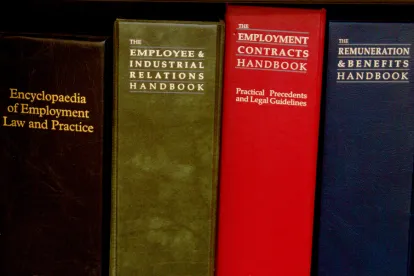This week, we continue our 2021 outlook series with a focus on labor and employment. With the new Presidential administration this year, we anticipate a number of changes in labor and employment laws on the federal level. The following are a few of the issues that may impact manufacturers in 2021.
Federal Government Involvement in COVID-19 Response
We expect the new Presidential administration will increase the level of federal government involvement in the COVID-19 response, which may impact the role of states and municipalities. An overview of the new administration’s plans is available in the Biden Plan to Combat Coronavirus (COVID-19) and Prepare for Future Global Health Threats. Under his plan, Biden focuses on increasing the availability of free COVID-19 testing, requiring paid leave for individuals affected by COVID-19, ensuring that federal workers will receive workers’ compensation for exposure to COVID-19 and encouraging states to do the same, and offering emergency paid sick leave and caregiver leave, among other initiatives. The Biden/Harris administration has also revealed plans for two major spending initiatives, the first of which includes provisions for increasing the federal minimum wage to $15 per hour and increasing federal unemployment insurance benefits, and the second of which addresses longer term goals, such as job creation.
Federal Minimum Wage and Paid Leave
We expect that a key focus of the new administration will be increasing the federal minimum wage as well as the leave and benefits that employers must provide employees. Over the last few years, there have been numerous attempts to increase the federal minimum wage (currently $7.25 per hour), but it has not been increased since 2009. President Biden has called for increasing federal minimum wage to $15 per hour as well as increasing the salary threshold for exempt employees (currently $35,568 per year). With regard to leave, the new administration is likely to focus on implementing paid leave policies, including paid sick leave and paid family and medical leave, in addition to its plans to increase paid leave related to COVID-19. Under the Biden Administration, the definition of “employee” may be expanded to include additional workers, including those that may previously have been classified as independent contractors.
Workers’ Rights to Organize
Throughout its campaign, the Biden/Harris team has made it clear that strengthening workers’ rights to organize will be a key focus and has detailed its plans in the Biden Plan for Strengthening Worker Organizing, Collective Bargaining, and Unions. This plan outlines a number of initiatives aimed at making corporations and individuals accountable for interference with union organizing, encouraging and incentivizing union organizing and collective bargaining, and making it easier for employees to organize, including shortening the time period from the filing of an election petition to voting (thereby shortening the union election campaign timeline), among other changes.
Equal Employment Opportunity
During its campaign, the Biden/Harris team made equal opportunity, diversity, equity, and inclusion a focus of many of its initiatives across a number of policy areas; this is detailed in the Biden Plan to Build Back Better By Advancing Racial Equity Across the American Economy. While the plan covers a number of initiatives, several are specific to equal opportunity, diversity, and inclusion in the workplace. One such initiative is to double the funding to the Equal Employment Opportunity Commission (EEOC), the federal agency tasked with enforcing federal anti-discrimination laws, which would allow the agency to increase the investigations that it initiates and to expand its ability to collect information from employers, including data regarding earnings gaps that may exist based on race and gender.
Federal Contractors
Major changes are expected with regard to employment laws that apply to employers doing business with the government including affirmative action compliance. Among those changes are increased requirements regarding diversity and inclusion training of employees, disclosure of labor law violations, the consideration of workplace conditions as a factor in awarding government contracts, signing of neutrality agreements whereby employers pledge not to interfere with union-organizing, multi-year debarment for employers who engage in wage theft or other labor law violations, disclosure of requirements practices for attracting women, minorities, and individuals with disabilities, among other changes.



 />i
/>i

